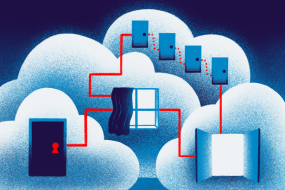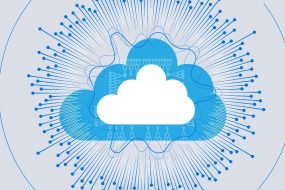
In the ever-evolving landscape of cloud hosting, the pursuit of scalability has been a perennial goal for businesses aiming to meet the demands of a dynamic online world. Traditionally, scaling resources manually has been the norm, often resulting in inefficiencies and unexpected spikes in operational costs. However, the advent of Artificial Intelligence (AI) is ushering in a new era of cloud hosting, one where autoscaling becomes not just a dream but a reality. In this blog, we delve into the exciting realm of Scalable Cloud Hosting empowered by AI, a technology that’s reshaping the way we think about infrastructure and scalability.
The Rise of Scalable Cloud Hosting
The Traditional Conundrum
In the traditional realm of cloud hosting, businesses have struggled to strike a balance between over-provisioning and under-provisioning resources. Over-provisioning entails the unnecessary allocation of resources, leading to increased costs, while under-provisioning can result in service disruptions during traffic spikes. The conventional approach often involved manual adjustments, leading to sluggish response times and inefficient resource utilization.
Enter AI-Powered Autoscaling
AI-powered autoscaling leverages machine learning algorithms to predict traffic patterns and resource needs in real time. This proactive approach empowers cloud infrastructure to automatically scale up or down, ensuring optimal resource allocation. As a result, businesses can enjoy improved performance, cost-efficiency, and, most importantly, peace of mind.
The Mechanics of AI-Driven Autoscaling
Data-Driven Decision Making
AI thrives on data. By analyzing historical traffic patterns and user behaviors, AI models can make accurate predictions about future resource needs. This data-driven approach ensures that resources are allocated precisely when and where they are needed.
Adaptive Scaling
AI-powered autoscaling systems are not just reactive but also adaptive. They continuously monitor the system’s health and can make adjustments based on sudden changes in traffic, ensuring that performance remains consistent.
Resource Optimization
AI goes beyond merely scaling up or down; it optimizes resource usage, making the most of every virtual machine, storage unit, and network resource. This not only reduces costs but also promotes sustainability.
Real-World Applications
E-commerce
In the world of e-commerce, seasonal fluctuations are common. AI-powered autoscaling allows online retailers to handle massive traffic spikes during holiday seasons, ensuring a seamless shopping experience for customers.
Media Streaming
With the rise of streaming services, scalability is critical. AI ensures that streaming platforms can handle concurrent users and deliver high-quality content without buffering or downtime.
Gaming
Online gaming relies on real-time performance. AI-driven autoscaling guarantees that gamers experience minimal lag, even during peak hours.
Benefits of AI-Driven Autoscaling
Cost Efficiency
By dynamically allocating resources, businesses can reduce operational costs by eliminating over-provisioning. AI helps strike the perfect balance between performance and budget.
Enhanced User Experience
With responsive and adaptive scaling, users enjoy a seamless experience with no interruptions or slowdowns, even during traffic surges.
Business Agility
The ability to scale on-demand means businesses can react quickly to market changes and opportunities, allowing for greater flexibility and competitive advantage.
Predictive Maintenance
AI also plays a role in predictive maintenance, identifying and addressing potential issues before they disrupt services.
Common Concerns Addressed
Data Security
AI-driven systems are designed with security in mind. Rigorous encryption and security protocols ensure the protection of sensitive data.
Implementation Challenges
Implementing AI-driven autoscaling can be complex. However, cloud providers offer user-friendly tools to facilitate integration.
Resource Wastage
Efficient resource allocation minimizes resource wastage, making it more sustainable and eco-friendly.
Vendor Lock-In
Consider vendor lock-in when selecting a cloud provider. Evaluate how easy it is to migrate to another provider if needed.
Final Words
Scalable Cloud Hosting empowered by AI is no longer a futuristic dream; it’s a present-day reality. AI-driven autoscaling offers unparalleled cost-efficiency, performance optimization, and user satisfaction. Businesses that embrace this technology position themselves for success in an ever-evolving digital landscape.
Commonly Asked Questions
Q1: How does AI predict resource needs accurately?
AI leverages machine learning models that analyze historical data, including traffic patterns and user behavior, to make precise predictions.
Q2: Is AI-driven autoscaling suitable for small businesses?
Yes, AI-driven autoscaling can benefit businesses of all sizes, as it offers cost savings and improved performance.
Q3: What’s the difference between traditional scaling and AI-driven autoscaling?
Traditional scaling requires manual adjustments, whereas AI-driven autoscaling is automatic and data-driven, resulting in better efficiency and performance.
Q4: Is data security a concern with AI-driven autoscaling?
Security is a priority in AI-driven systems, with robust encryption and security measures in place to protect data.
Q5: How can businesses ensure flexibility when implementing AI-driven autoscaling?
Selecting a cloud provider that supports easy migration and avoids vendor lock-in can help businesses maintain flexibility.
Advertisement







